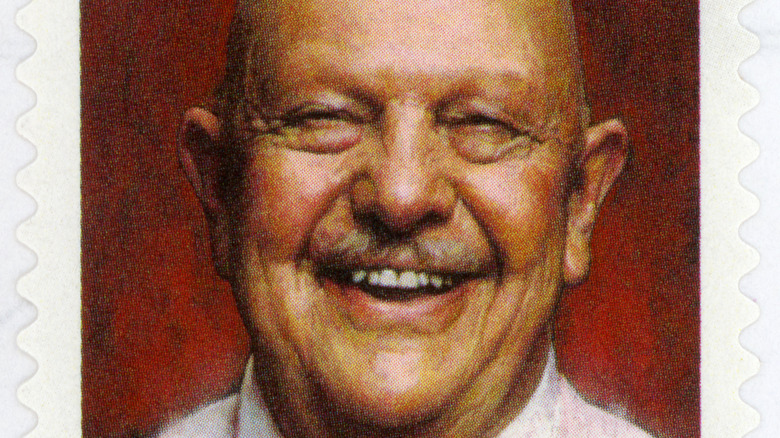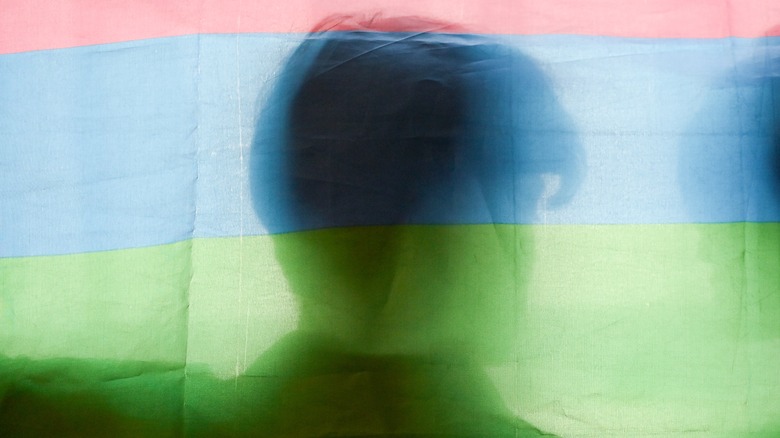Why James Beard's Editors May Have Erased His True Writing Style
We may receive a commission on purchases made from links.
As hard as it is to imagine a world without Julia Child, the fact is that without James Beard, American food culture as we know it today would be very different. This may seem like an exaggerated claim, but Beard was one of the early pioneers of modern American cookery. He was the first cook to appear on television in 1946 on "I Love to Eat" and was already a well-established cookbook writer well before Child burst onto the scene (via Town and Country). It's something of a shame, then, that despite a wealth of published work and a foundation dedicated to his legacy that the man himself remains quite hidden.
This is potentially the fault of his editors. While Julia Child's unique voice and writing style jump off of page and screen, Beard's voice is far more muted. There is an idea, expounded upon by writer James Birdsall in his book "The Man Who Ate Too Much," that the time in which Beard wrote and was popular was a deterrent to his authentic voice. James Beard was a gay man, and it was his sexuality, which influenced the way he cooked, that was erased by editors.
A hidden voice
Early in his career, James Beard was allowed to flex his authentic voice. His second book, "Cook It Outdoors," is a perfect example of Bear's unencumbered writing style. "It's a strikingly queer voice. You know, you really hear him. He says fabulous a lot. He'll use these really colorful metaphors. He's funny, he's relaxed," says Birdsall in Food and Wine. Beard's first publisher, M.Barrows, had a relatively lax approach to editing and therefore didn't make great changes to any of the gourmand's innuendo or vivacity.
However, when Beard began to garner more renown post-WWII — a reportedly perilous time for the LGBTQ community — fears of being outed and new, more keen-eyed editors began to change Beard. According to Birdsall, with the 1949 Simon and Schuster publication of "The Fireside Cookbook," Beard's queerness all but vanished. This paved the way for the public persona of James Beard, the "Dean of American Cooking," and shoved aside the more authentic, flamboyant James Beard of earlier works. Is it any real shock that with the erasure of his authentic self, while Beard's overall legacy and name continue to thrive, the man himself remains hidden?

